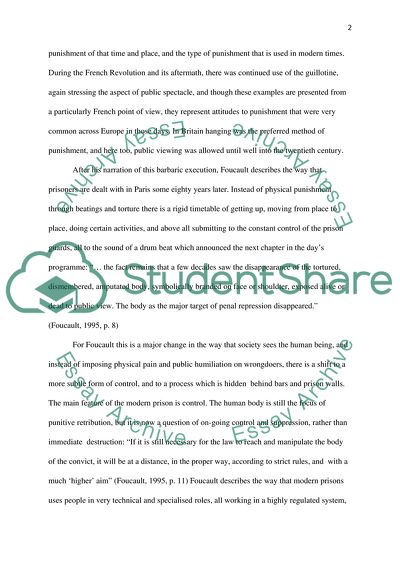Cite this document
(How Does Foucault Explain the Emergence and Persistence of the Prison Term Paper - 1, n.d.)
How Does Foucault Explain the Emergence and Persistence of the Prison Term Paper - 1. Retrieved from https://studentshare.org/social-science/1750971-how-does-foucault-explain-the-emergence-and-persistence-of-the-prison-do-you-agree
How Does Foucault Explain the Emergence and Persistence of the Prison Term Paper - 1. Retrieved from https://studentshare.org/social-science/1750971-how-does-foucault-explain-the-emergence-and-persistence-of-the-prison-do-you-agree
(How Does Foucault Explain the Emergence and Persistence of the Prison Term Paper - 1)
How Does Foucault Explain the Emergence and Persistence of the Prison Term Paper - 1. https://studentshare.org/social-science/1750971-how-does-foucault-explain-the-emergence-and-persistence-of-the-prison-do-you-agree.
How Does Foucault Explain the Emergence and Persistence of the Prison Term Paper - 1. https://studentshare.org/social-science/1750971-how-does-foucault-explain-the-emergence-and-persistence-of-the-prison-do-you-agree.
“How Does Foucault Explain the Emergence and Persistence of the Prison Term Paper - 1”. https://studentshare.org/social-science/1750971-how-does-foucault-explain-the-emergence-and-persistence-of-the-prison-do-you-agree.


